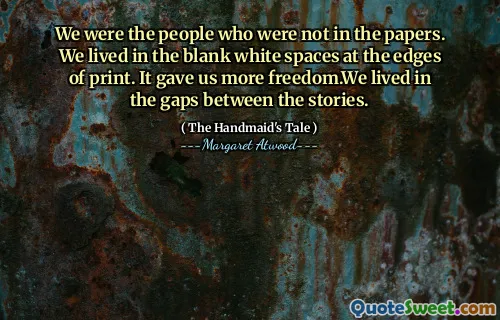There is something subversive about this garden of Serena's, a sense of buried things bursting upwards, wordlessly, into the light, as if to point, to say: Whatever is silenced will clamor to be heard, though silently.
In "The Handmaid's Tale," Margaret Atwood presents Serena's garden as a powerful metaphor for repressed voices and emotions. The garden thrives secretly, symbolizing the struggles and desires that the characters cannot openly express in their oppressive society. Through this imagery, Atwood suggests that silenced truths will eventually seek to emerge, even if they do so without words.
This subversive nature of the garden reflects a deeper commentary on the resilience of human experience. The growth and vitality found in the garden serve as a reminder that while oppressive regimes may try to stifle voices, the underlying yearning for expression and freedom remains strong, pushing towards the surface like plants breaking through soil.
